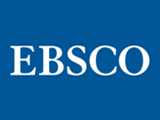
A new agreement between EBSCO Publishing (EBSCO) and Accessible Archives, Inc. will enable additional primary source content to be discoverable within EBSCO Discovery Service™ (EDS). Metadata from five new Accessible Archives’ databases will be added to EDS, the most comprehensive and robust collection of metadata from the best content sources. The addition of this content will serve as a valuable resource for EBSCO Discovery Service users with an interest in American history and culture.
The new databases from Accessible Archives include:
· The National Anti-Slavery Standard
· National Citizen and Ballot Box
· American County Histories IV: West
Frank Leslie’s Weekly is an illustrated literary and news publication that ran from 1852 until 1922. Frank Leslie’s Weekly provided reports of wars from John Brown’s raid at Harpers Ferry and the Civil War until the Spanish-American War and the First World War. It also included extensive coverage of events such as the Klondike gold rush of 1897, the laying of the 1858 Atlantic Cable and the San Francisco earthquake of 1906.
The National Anti-Slavery Standard was the official weekly newspaper of the American Anti-Slavery Society. Established in 1840, the Standard sought to extend the rights of slaves across the country and also advocated suffrage for women.
The National Citizen and Ballot Box was a monthly journal edited by American women’s rights advocate, Matilda Joslyn Gage that published essays on a wide range of issues, including regular columns about prominent women in history and female inventors.
The women’s suffrage movement was also the subject of The Revolution, a weekly women’s rights newspaper that was the official publication of the National Woman Suffrage Association. Published between 1868 and 1872, The Revolution’s influence on the national woman’s rights movement was enormous and it confronted subjects not discussed in most mainstream publications of the time.
American County Histories IV: West is one of four geographic groupings of American County Histories an essential resource for local historical and genealogical research. American County Histories IV: West includes county histories with regional overviews and general community conditions for Alaska, California, Colorado, Hawaii, Idaho, Montana, Nevada, Oregon, Utah, Washington and Wyoming.
Accessible Archives, Inc. is an electronic publisher of primary source full-text historical databases encompassing rich, comprehensive material found in leading historical periodicals, books and newspapers. Accessible Archives content also provides unique historical elements reflecting broad views of American history and culture. Information includes: eyewitness accounts of historical events, vivid descriptions of daily life, editorial observations, commerce as seen through advertisements and genealogical records.
EBSCO Discovery Service users will have the ability to search the full text of Accessible Archives resources bringing an extended list of results alongside additional library resources. EDS creates a unified, customized index of an institution’s information resources, and an easy, yet powerful means of accessing all of that content from a single search box—searching made even more powerful because of the quality of metadata and depth and breadth of coverage.
Accessible Archives, Inc. is part of a growing list of publishers and other content partners that are taking part in EDS to bring more visibility to their content. Partners include the world’s largest scholarly journal & book publishers including Elsevier, Wiley Blackwell, Springer Science & Business Media, Taylor & Francis Informa, Sage Publications, and thousands of others. Partners also include content providers, such as LexisNexis, Thomson Reuters (Web of Science), JSTOR, ARTstor, Credo Reference, World Book, ABC-CLIO, and many others.
EBSCO Discovery Service is quickly becoming the discovery selection for many libraries (www.ebscohost.com/discovery/eds-news), and an obvious partner for content providers. Because the service builds on the foundation provided by the EBSCOhost® platform, libraries gain a full user experience for discovering their collections/OPAC—which is not typical in the discovery space. Further still, in the many universities and other libraries where EBSCOhost is the most-used platform for premium research, users are not asked to change their pathways or habits for searching. There’s simply more to discover on the familiar EBSCOhost platform, and the same can be said for library administrators who can leverage their previous work with EBSCOadmin™.
























